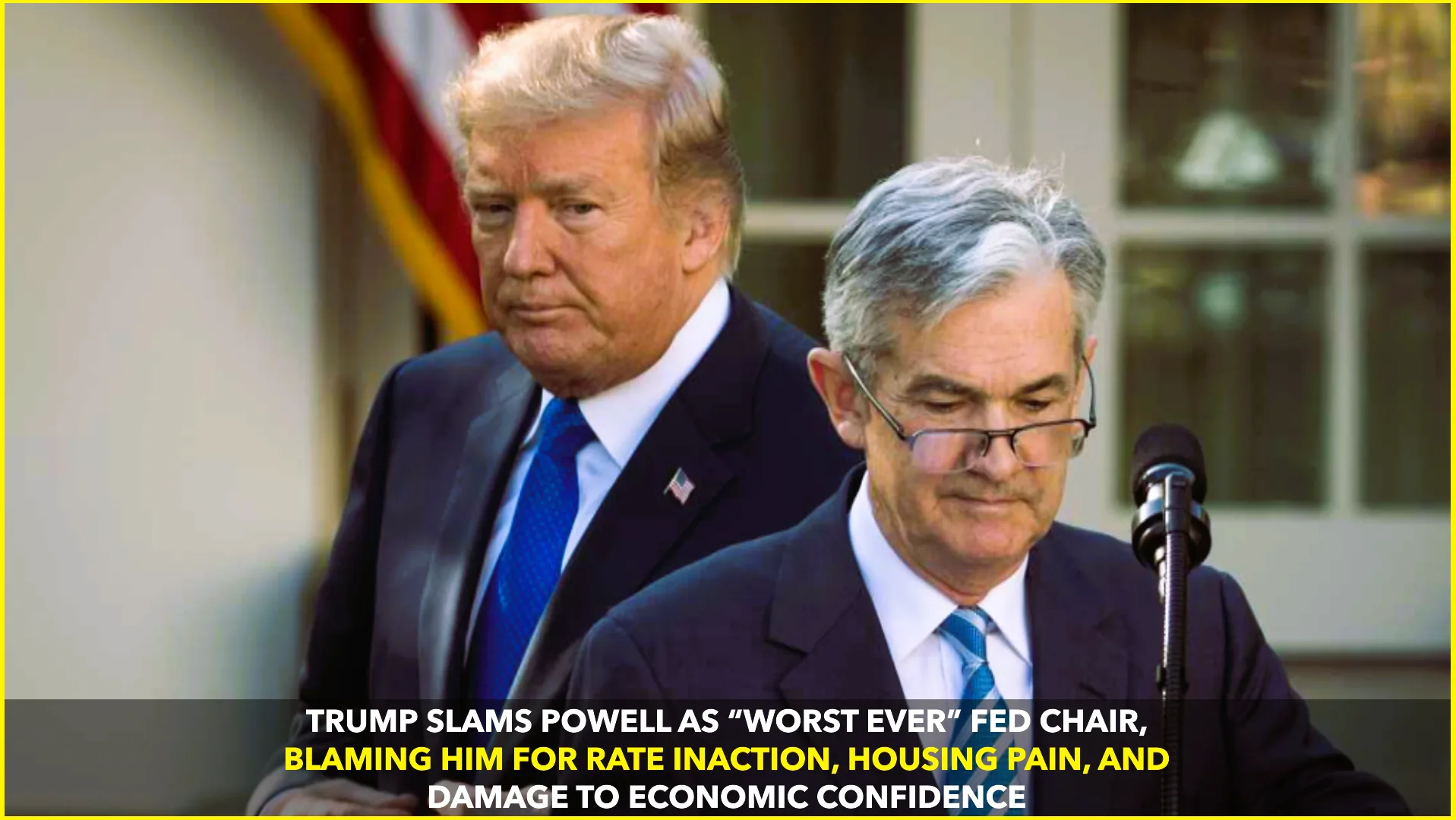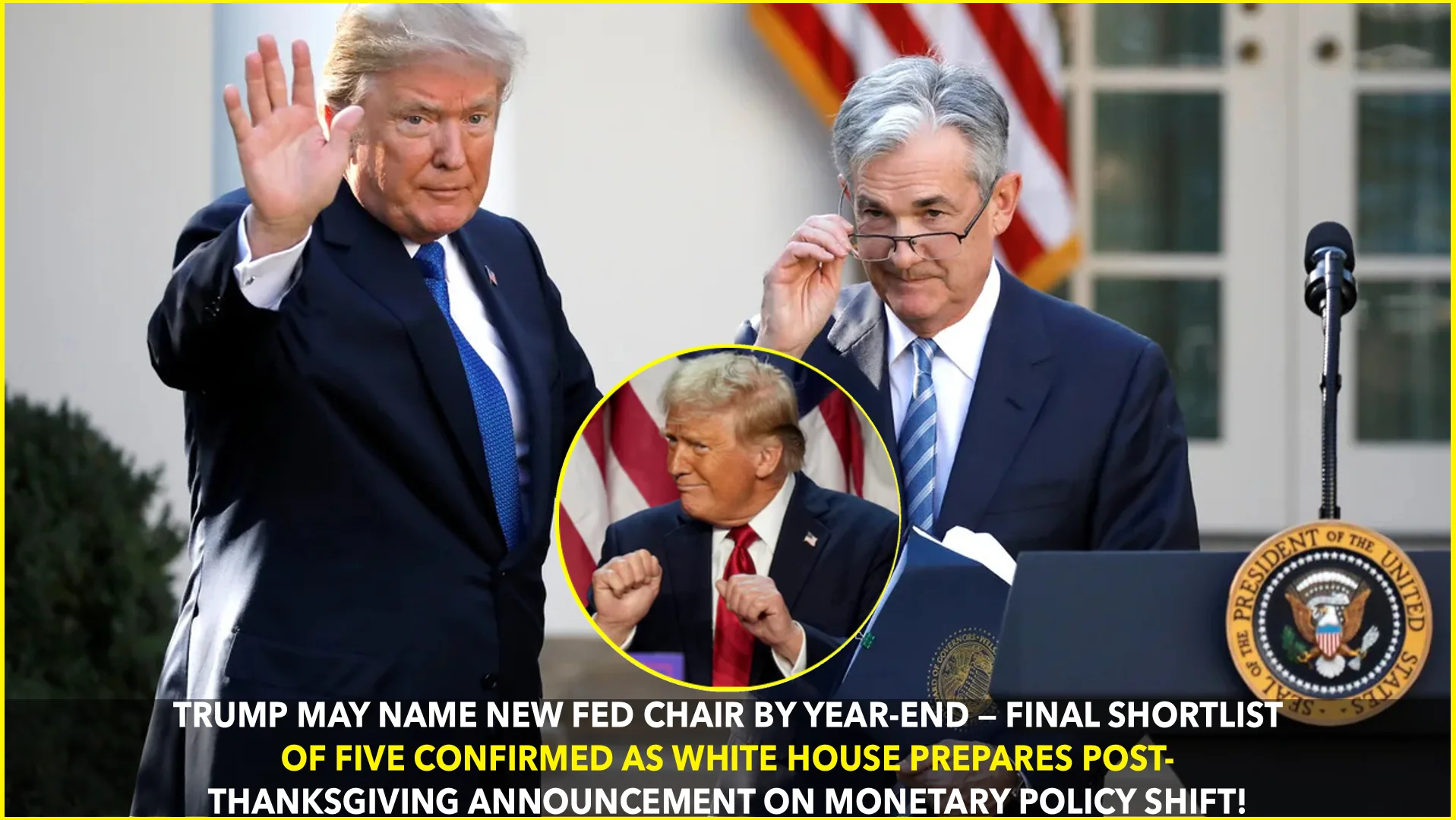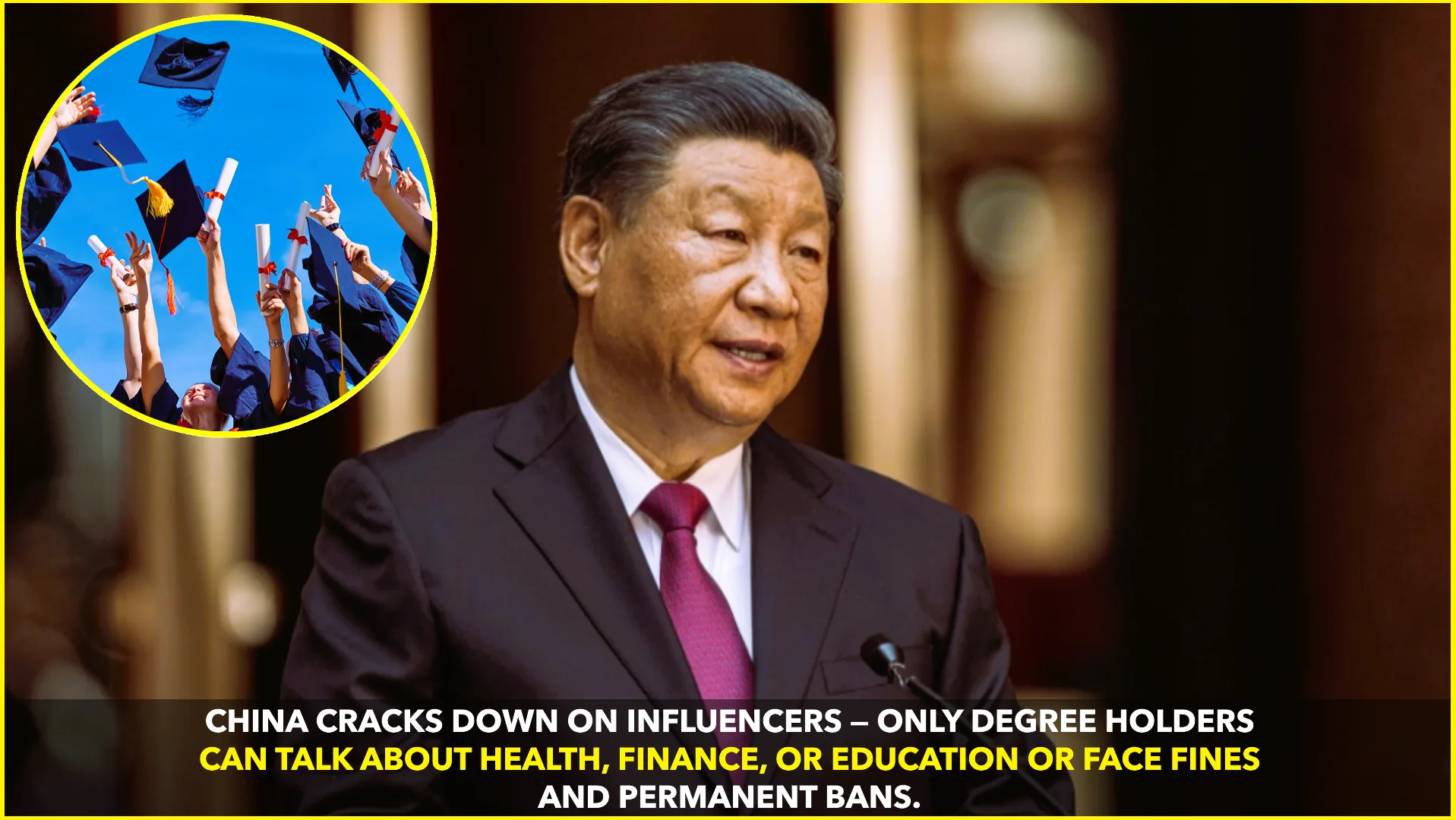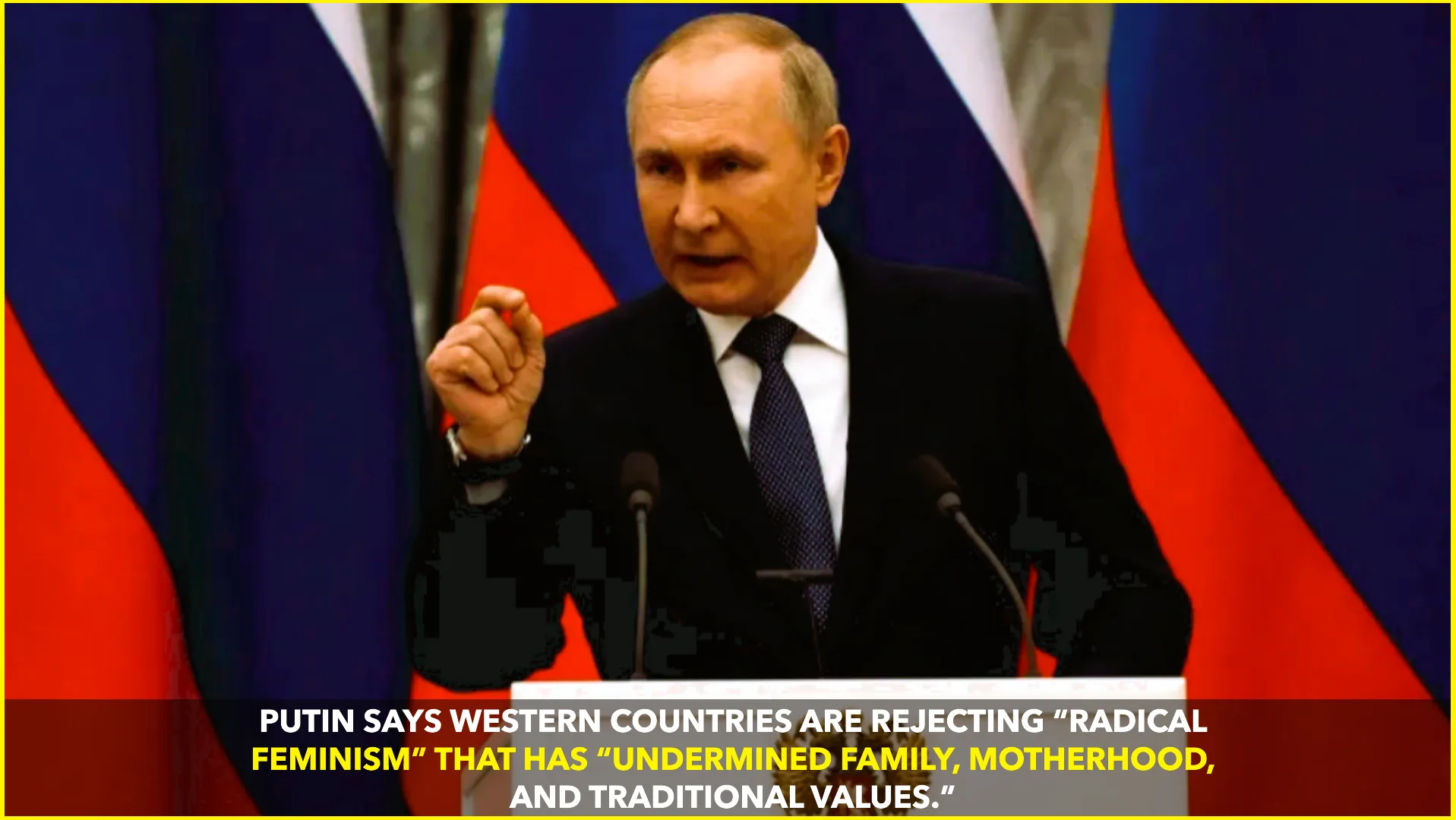Trump Assails Powell in Harshest Terms Yet
Washington, D.C., President Donald Trump intensified his public attacks on Federal Reserve Chair Jerome Powell, labeling him the “worst chairman in Federal Reserve history.” Trump accused Powell of failing to reduce interest rates, thereby making borrowing prohibitively expensive, damaging housing affordability and undermining confidence in the U.S. economy.
In recent remarks shared widely on social media and during public statements, Trump argued that Powell’s cautious stance on rate cuts has held back the housing market and made mortgages less attainable for many Americans. He contended monetary policy inertia drove up costs of living and weighed on economic optimism.The Guardian+3Reuters+3Reuters+3
Trump’s criticism follows earlier scathing commentary—calling Powell a “real dummy,” a “knucklehead,” and even accusing him of costing “billions” by dragging his feet on cuts. He has consistently pushed for an immediate, steep rate cut—arguing that global data show inflation is already under control.Reuters+2New York Post+2
Broad Political Context
The president’s remarks come just ahead of a key Federal Open Market Committee meeting, where modest rate reductions are expected. Analysts note Trump’s demands far exceed what the Fed is likely to approve, with the central bank reportedly planning a cautious 0.25–0.50 percentage point cut.Reuters+1
Meanwhile, the administration continues to explore reshaping the Fed leadership. A pending court ruling over Trump’s attempt to oust Fed Governor Lisa Cook may influence the central bank’s political independence. The Senate is also considering confirming pro-administration candidates—raising concerns among economists about politicization of monetary policy.Investopedia+1
Market and Expert Reactions
Economists and analysts warn that politically pressuring the Fed chairman threatens the institution’s credibility—a key anchor for global financial markets. A study from Babson College suggests the mere hint of ousting Powell could wipe out up to $1.5 trillion in equity value.
Powell himself has emphasized that rate decisions must be driven by economic data, not political demand. He has resisted calls to step down early, noting that the Fed’s independence remains vital for price stability and long-term confidence.The Washington Post+2Investopedia+2
What Trump is Demanding
- A large and immediate reduction in benchmark interest rates, with many of his advisers seeking cuts to around 1 percent—far below current levels (~4.25–4.50 percent)The Washington Post+2New York Post+2.
- A Fed chair aligned with swiftly easing monetary policy to boost housing and consumer affordability.
- Potential replacement of Powell with figures supportive of aggressive rate cuts, such as Kevin Hassett, Kevin Warsh, or Treasury Secretary Scott Bessent.Reuters+2Wikipedia+2
Why It Matters
Trump’s intensified rhetoric highlights a deepening confrontation between political leadership and monetary policymaking. While the president frames his demands as a fight for affordability and growth, critics argue the tone and pressure could undermine the Fed’s long-standing independence and market confidence.
With inflation still above the Fed’s 2 percent goal, policymakers face a delicate balancing act—pursuing tighter rates to keep price pressures in check while responding to political calls for relief. As the debate plays out, the U.S. economy remains watching: will Powell yield to pressure, or will the Fed hold course on data-driven policy?
At a Glance
| Issue | Trump’s Claims | Fed / Analysts View |
|---|---|---|
| Powell’s leadership | “Worst Fed chair ever”; blamed for high costs and lost confidence | Insists decisions are data-driven and independent |
| Interest rate policy | Urges steep, fast cuts to ~1% | Prefers modest, cautious easing amid still-elevated inflation |
| Independence of the Fed | Pressuring for leadership change | Analysts warn against politicizing monetary decisions |










